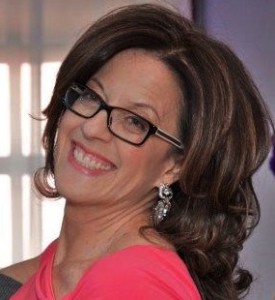Today’s guest post comes from Elissa Freeman. Team Geben is a little obsessed with the Olympics, so when we heard Elissa was going to merge our love for the games with our love for smart PR strategies, we just couldn’t wait to share.
By: Elissa Freeman
Faster, higher, stronger…smarter.
From the time the flame was lit to the glitter of the closing ceremonies, the Olympic Games in Sochi leave us with two lasting legacies: feats of athleticism and PR prowess.
When it came to the Sochi Games, many narratives emerged even before the first puck hit the ice – centered mainly on human rights, or lack thereof. For some groups developing an impactful PR narrative was as important as a winning medal count.
Over 17 days, many narratives did emerge; but what issues and/or campaigns rose above the clutter?
Gold: Putin’s PR Bubble
Yes, he rules Russia with an iron fist, but from the very start, Vladimir Putin was intent on showing the world, and his own electorate, the Sochi Games were going to be a success. He wanted to reignite national pride and ignore the naysayers. To that end, he succeeded. While the country’s anti-gay law fueled threats of team boycotts and heads of state stayed away in droves, Putin ignored international outrage and created a PR bubble: proving he could take a sleepy little resort town and host the world over 17 days of athletic competition. He stuck to that narrative and played the part to the hilt; cuddling up to the first openly gay Sochi gold medalist Ireen Wurst and posing for selfies with US and Canadian athletes when he showed up at their respective Olympic Houses – all this in spite of his reputation as an abuser of human rights. Top that off with another PR device, as athletes and sports officials organically acted as his third party ambassadors’ in their effusive praise of the Games. Who could ask for anything more?
Silver: Pussy Riot
Behind the shiny veneer of the Sochi Olympics, no activist received more airplay than Russian punk rock group Pussy Riot. Previously jailed for their contrary views regarding the Putin regime, as soon as members of the group were released, they brilliantly courted the media to maintain their profile and their anti-Putin POV. During February alone, they appeared at an Amnesty International Bring Human Rights Home Concert and created spontaneous press and photo ops to showcase their new song, Putin Will Teach You to Love Your Country. During one impromptu performance of the song, Russian Cossacks began flogging the singers – footage that was captured and included in their music video. By leveraging an event where the world media gathered, Pussy Riot ensured their message was heard loud and clear.
Bronze: LGBT Activism
Activism around Putin’s anti-gay laws began well before the start of the Games. The issue had many proponents, including President Obama’s naming of openly gay tennis great Billie Jean King as a member of the US Sochi delegation. The Canadian Institute for Diversity and Inclusion created a ‘racy’ luge video that went viral – claiming “the Games have always been a little gay.” The issue had lots of momentum going in, but did not pop the Sochi PR bubble in a significant way – especially as protests and demonstrations are banned at the Olympics. Even when former Italian lawmaker and transgender activist Vladimir Luxuria showed up resplendent in a rainbow-colored costume carrying a flag stating, “gay is okay,” her expulsion made nary a ripple among spectators and athletes. The media covered it in a cursory way, often quoting the IOC (International Olympic Committee) who defended her removal.
What will be interesting to watch are which narratives will last beyond these Olympic Games. Unrest in the Ukraine and already crumbling Sochi infrastructure have captured the media’s attention. With the Winter Paralympic Games set to take place in two weeks, will the world’s audience succumb to a different narrative other than the one Putin initiated? Only time will tell.
What do you think?
 Elissa Freeman is a PR consultant and pop culture columnist based in Toronto, Canada. Her work regularly appears in PR Daily, The Huffington Post and canada.com, where she is also co-host of The Flip Side. Named one of Twitter’s Top 75 Badass Females and Top 52 PR pros, she is also Principal of elissapr communications where she specializes in health care and health policy strategic communications.
Elissa Freeman is a PR consultant and pop culture columnist based in Toronto, Canada. Her work regularly appears in PR Daily, The Huffington Post and canada.com, where she is also co-host of The Flip Side. Named one of Twitter’s Top 75 Badass Females and Top 52 PR pros, she is also Principal of elissapr communications where she specializes in health care and health policy strategic communications.
Photo credit: Jarrett Frazier, via Flickr Creative Commons
